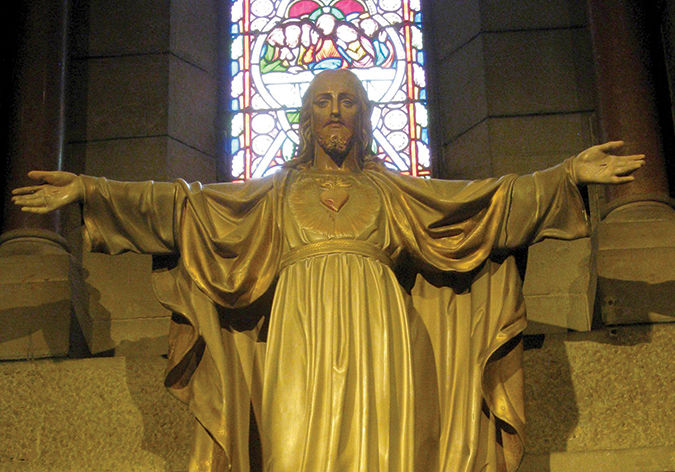More than 1,600 people of all ages, races and ethnicities will become part of the one Great Body of Christ that is the Catholic Church this weekend in the Los Angeles Archdiocese. It is a moment for which some have waited years — or, as some wise birds might suggest, just slightly longer than the Easter Vigil celebration itself.
In the Holy Saturday night liturgy are more prayers, more rituals, more music and more Scripture, including seven readings from the Old Testament alone, each followed by a responsorial Psalm. Long? Yes, undeniably. And yet, each reading is undeniably essential to the full understanding of what it means to journey to this moment of salvation and new life in the risen Lord. There is struggle, there is heartache, there is wonder, there is joy.
From a personal standpoint, no reading captures these components as well as the seventh, from the Book of the prophet Ezekiel. Were anyone to ask, “What passage of Scripture is most meaningful to you?” I would be hard-pressed to find another that matches the power of Ezekiel 36: 16-17a, 18-28.
For here is God the Father, visibly (or at least audibly) disgusted, yet again, with the behavior of his beloved house of Israel whose people have yet again profaned and defiled his gifts — much, as quite honestly, an irresponsible child acts up again and again despite the most fervent coaxing and/or direst threats from his father.
“I scattered them among the nations,” says the Lord, clearly annoyed, “dispersing them over foreign lands; according to their conduct and deeds I judged them.”
But then, almost as if talking himself down from his anger — much like actual parents do — God’s tone (as related through Ezekiel) begins to soften. First, having (he hopes) gotten their attention, he lays down some ground rules, to let his people know they are not off the hook:
“Not for your sakes do I act, house of Israel, but for the sake of my holy name,” he states, adding pointedly, “which you profaned among the nations to which you came.”
Next — like a loving father would do for his precious children — he lets them know he is giving them yet another chance to do right, to abandon their selfish ways in favor of the way of love:
“I will sprinkle clean water upon you to cleanse you from all your impurities,” he says, “and from all your idols I will cleanse you.”
Most of all, the Lord promises his people a new heart and new spirit — natural hearts to replace their stony hearts, his own spirit by which they may live his statutes and observe his decrees.
“You shall live in the land I gave your fathers,” God declares, adding in his most loving, fatherly tone: “You shall be my people, and I will be your God.”
As a son who has “acted up” and disappointed his father more than once, and incurred his father’s wrath, and yet felt his father’s love time after time, I find this reading the most comforting and reassuring in all of Scripture. For as much as I may fall down and turn away from God in my daily life, I take comfort in knowing that God remains close, as close as I choose to be.
From a liturgical standpoint, there could not be, in my humble view, a more appropriate Easter Vigil reading through which to transition from the heartaches of the Old Testament to the hope of the New — especially when followed by Psalm 42 which so well expresses our desire for the new life God has promised: “As the deer longs for running streams, so I long for you.”
Indeed, the cleansing waters that will soon be blessed for baptizing and sprinkling Catholics new and old are at hand, preceded by the singing of the Gloria, the explosion of lights in the church, Paul’s joyous letter to the Romans (“We know that Christ, raised from the dead, dies no more; death no longer has power over him”), and Matthew’s Gospel proclamation of the Risen Christ (“He is not here, for he has been raised just as he said,” the angel tells the women at the tomb, “and he is going before you to Galilee”).
Hope, love, a new life, a new spirit — and a new heart, promised by Ezekiel six centuries before God sent the One who was, and is, the heart of God’s promise God. It is a promise worth waiting for — and a liturgy, however long, worth celebrating.
—Mike Nelson

